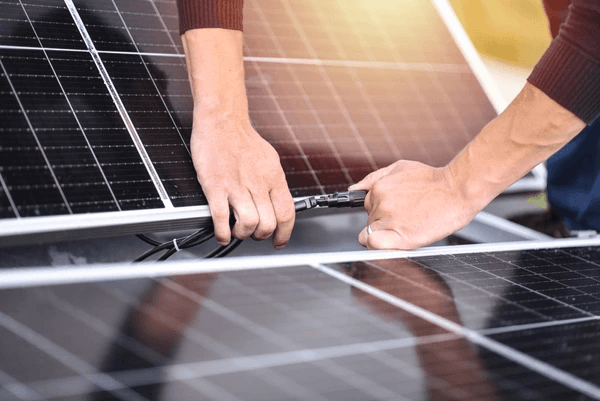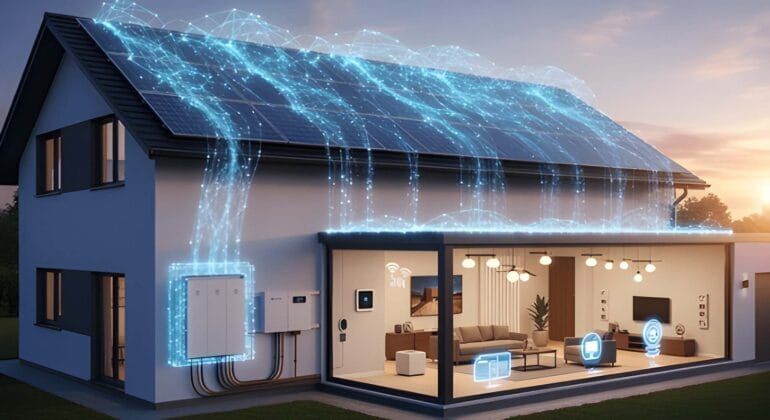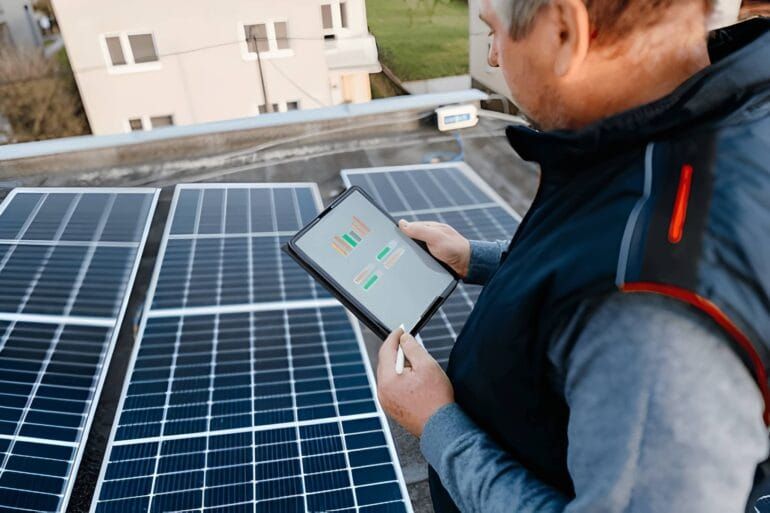In today’s fast-paced world, where household energy demands are rising, ensuring that our homes are energy-efficient has become more important than ever. In recent years, the Australian Capital Territory (ACT) government has been making significant strides toward a more sustainable and energy-efficient future. One of the crucial aspects of this effort is the allocation of funds in the ACT Budget to assist homeowners in upgrading their energy systems. These initiatives not only benefit individual homeowners but also contribute to the larger goal of reducing the region’s carbon footprint and combating climate change.
Understanding the ACT Budget for Homeowners
2.1 The Importance of Household Energy
Household Energy is a key priority for the ACT government, as it plays a vital role in conserving valuable resources and reducing household energy gas emissions. By improving the energy efficiency of residential properties, the government aims to lower electricity and gas consumption, leading to reduced utility bills for homeowners and a more sustainable environment for all.
2.2 Government Initiatives for Energy Upgrades
The ACT Budget sets aside substantial funds each year to support various programs and incentives aimed at encouraging homeowners to embrace household energy practices. These initiatives are designed to make the transition to sustainable energy options more accessible and affordable for the community.
Exploring Energy Efficiency Rebates
3.1 Solar Panel Incentives
One of the most popular and impactful energy upgrade options is the installation of solar panels. The ACT Budget offers attractive incentives for homeowners who choose to adopt solar energy, making it easier for them to harness the power of the sun and reduce their dependence on conventional electricity.
3.2 Insulation Grants
Proper insulation is crucial for maintaining a comfortable indoor environment and minimizing energy waste. The government provides insulation grants to homeowners, allowing them to improve their household energy insulation and conserve energy effectively.
3.3 Energy-Efficient Appliance Discounts
Replacing outdated appliances with energy-efficient models is an effective way to reduce energy consumption. Homeowners can take advantage of discounts and rebates offered through the ACT Budget to make the switch to greener appliances.
The Impact of Energy Audits
4.1 Identifying Energy Consumption Patterns
Energy audits play a vital role in assessing household energy usage and identifying areas where improvements can be made. By conducting energy audits, homeowners gain valuable insights into their energy consumption patterns and can take targeted actions to optimize energy usage.
4.2 Implementing Energy-Saving Solutions
Once the household energy audit is completed, homeowners can implement the recommended energy-saving solutions. These may include upgrading insulation, sealing air leaks, or investing in more efficient heating and cooling systems, all of which contribute to a greener and more cost-effective home.
Empowering Homeowners through Financial Assistance
5.1 Low-Interest Home Improvement Loans
Financial barriers should not hinder homeowners from making household energy upgrades. The ACT Budget provides low-interest home improvement loans to enable homeowners to fund their energy-efficient renovations without facing exorbitant interest rates.
5.2 Subsidized Energy Upgrade Programs
The government also offers subsidized household energy upgrade programs, where a portion of the expenses for eligible energy-saving projects is covered by the state. This support makes household energy upgrades more accessible and enticing to homeowners.
Transforming Homes with Renewable Energy
6.1 Harnessing Solar Power
Solar power is a game-changer in the realm of renewable energy. The ACT Budget’s emphasis on solar incentives has encouraged homeowners to adopt solar energy, resulting in reduced reliance on non-renewable energy sources and lower carbon emissions.
6.2 Embracing Wind Energy
Aside from solar, wind energy is another promising avenue for sustainable power generation. Some homeowners are exploring wind turbine options with support from the ACT Budget, contributing further to the diversification of renewable energy sources.
The ACT Budget and Sustainable Infrastructure
7.1 Smart Grid Systems
The implementation of smart grid systems in the ACT ensures a more efficient distribution of energy. These intelligent networks allow for better monitoring and management of energy usage, benefitting both homeowners and the overall energy infrastructure.
7.2 Eco-Friendly Community Projects
The ACT Budget allocates resources to support community-driven eco-friendly projects. This collaboration fosters a sense of environmental responsibility and promotes community involvement in sustainable development initiatives.
The Role of Public Awareness and Education
8.1 Workshops and Seminars
Public awareness is crucial in driving household energy-efficient practices. The government organizes workshops and seminars to educate homeowners about the benefits of household energy upgrades and the various programs available to them.
8.2 Energy Conservation Campaigns
Energy conservation campaigns are an integral part of the ACT Budget’s approach to promoting sustainable living. These campaigns inspire behavioral changes, encouraging homeowners to adopt more eco-friendly habits in their daily lives.
Overcoming Challenges in Energy Upgrades
9.1 Affordability and Accessibility
While the ACT Budget provides financial support, affordability remains a concern for some homeowners. Addressing this challenge involves continuous efforts to find innovative ways to make household energy upgrades more affordable and accessible for all.
9.2 Technological Advancements
The world of renewable energy is rapidly evolving with technological advancements. The ACT Budget needs to adapt and integrate these new developments into its household energy upgrade initiatives to stay at the forefront of sustainable living practices.
Low-Cost Energy Efficiency Improvements
Let’s start with some budget-friendly energy efficiency improvements that you can implement without breaking the bank.
Installing LED Lighting
Switching from traditional incandescent bulbs to LED lighting can lead to substantial energy savings. LED bulbs are more energy-efficient and have a significantly longer lifespan.
Sealing Air Leaks
Air leaks around doors, windows, and other openings can cause energy wastage. Sealing these gaps with weatherstripping and caulk will improve your home’s energy efficiency.
Insulating Your Home
Proper insulation plays a crucial role in maintaining a comfortable indoor temperature and reducing energy consumption. Adding insulation to walls, attics, and crawl spaces can have a significant impact on your energy bills.
Smart Thermostats
Investing in a smart thermostat allows you to control your home’s temperature remotely and set personalized heating and cooling schedules, optimizing energy usage.
Assessing Your Household’s Energy Consumption
To create an effective budget for household energy upgrades, you need to know how your household currently consumes energy. Conducting an energy audit is the first step in this process. You can hire a professional energy auditor or perform a DIY audit using tools and resources available online. The audit will identify energy-draining areas and help prioritize upgrades that offer the most significant benefits.
Identifying Energy-Draining Areas
Once you have the audit results, focus on areas with the most substantial energy consumption. Common culprits include inefficient lighting, air leaks, lack of insulation, outdated appliances, and non-energy-efficient windows and doors. Addressing these issues will form the core of your energy upgrade plan.
Budgeting for Energy Upgrades
Setting a budget is crucial when planning for energy upgrades. While some improvements are low-cost and can be done independently, others may require more significant investments. Having a well-defined budget will guide your decisions and ensure that you get the best value for your money.
Steps to Avail the ACT Budget Benefits
To make the most of the ACT Budget’s energy-efficient initiatives, homeowners need to follow a few simple steps. Firstly, they need to identify the upgrades they want to implement. This could range from installing solar panels to upgrading energy-efficient appliances. Secondly, homeowners must check the eligibility criteria for budget incentives and grants. Once confirmed, they can proceed with the necessary paperwork and applications to avail the benefits.
Solar Feed-in Tariffs
To incentivize the adoption of solar energy, the ACT government offers attractive feed-in tariffs to homeowners who generate surplus electricity from their solar panels. Homeowners can sell this excess energy back to the grid at favorable rates, further offsetting the initial investment in solar installations and encouraging others to embrace renewable energy solutions.
Energy Audit Subsidies for Businesses
Recognizing that commercial entities also play a significant role in energy consumption, the ACT budget extends energy audit subsidies to businesses. These subsidies cover a portion of the energy audit cost, encouraging businesses to identify areas of improvement and invest in energy-efficient technologies.
Conclusion
The ACT Budget’s dedication to supporting homeowners in upgrading their household energy systems is a commendable step towards a greener and more sustainable future. Through various incentives, financial assistance, and public awareness programs, the government empowers homeowners to take charge of their energy consumption and embrace renewable energy options. By working together, the community can make a significant positive impact on the environment while enjoying the long-term benefits of reduced energy costs.
FAQs
1. What is the ACT Budget for Homeowners?
The ACT Budget for homeowners refers to the allocation of funds by the Australian Capital Territory government to support various energy upgrade initiatives for residential properties.
2. How can I apply for energy efficiency rebates?
To apply for energy efficiency rebates, homeowners can visit the official website of the ACT government’s energy department and follow the guidelines provided for each specific program.
3. Are there any tax incentives for energy upgrades?
Yes, some energy upgrades may qualify for tax incentives. Homeowners are encouraged to check with relevant authorities or consult a tax professional to explore potential tax benefits.
4. Can renters also benefit from these initiatives?
While some initiatives may be more targeted towards homeowners, renters can still benefit indirectly from energy upgrades made to the property by the landlord.
5. How long does an energy audit typically take?
The duration of an energy audit varies depending on the size and complexity of the property. In general, it may take a few hours to a full day to complete the assessment.
6. Are energy upgrades worth the investment?
Absolutely! Energy upgrades not only lead to long-term cost savings but also help protect the environment.
7. How much can I save on my energy bills?
The amount of savings varies based on the upgrades you make, but it can be significant over time.
8. What are the best energy-efficient appliances to consider?
Look for appliances with the ENERGY STAR label, as they meet strict energy efficiency guidelines.







